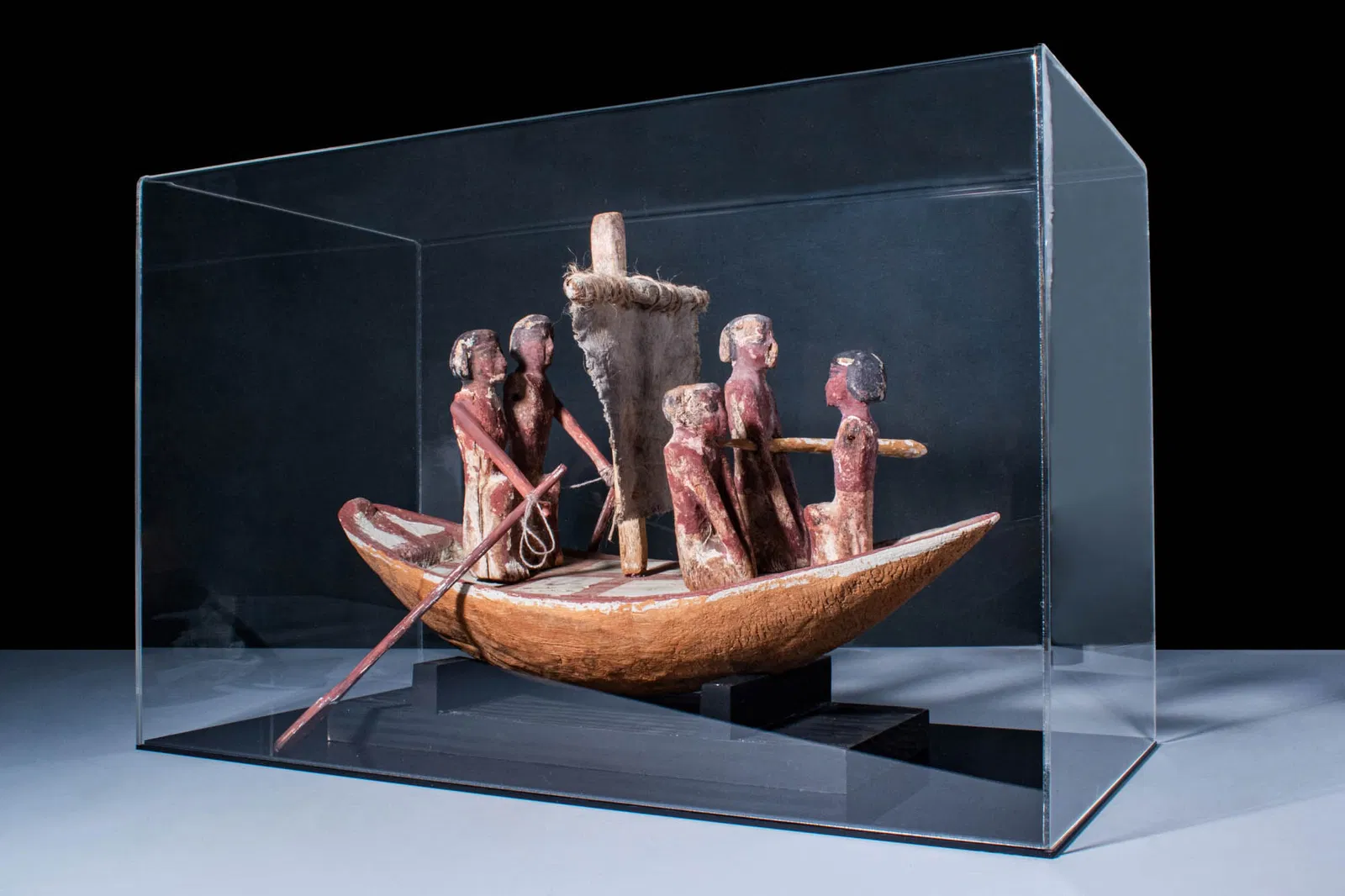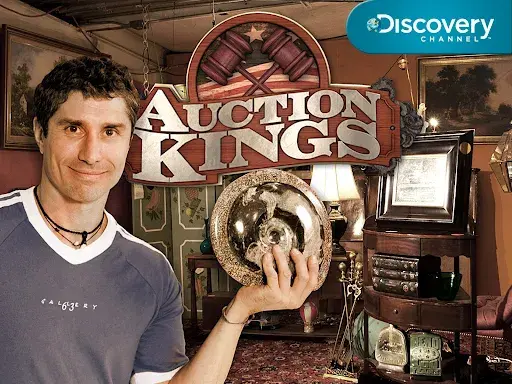Apollo’s Dec. 15 Fine Ancient Art & Antiquities Auction delivers holiday selection of extraordinary treasures dating as early as the 50th century BC
Many prized artifacts have provenance from acclaimed collections of Alison Barker, Nahum Goldmann, Shlomo Moussaieff, Dr Guido Goldman, W. Benson Harer, Drexel Institute, and others

LONDON – Apollo Art Auctions takes utmost pleasure in announcing highlights of their December 15 Fine Ancient Art & Antiquities live gallery auction, which will start at 3pm GMT/10am US Eastern time, following a red-carpet morning session devoted exclusively to The Prince Collection. The afternoon event offers collectors a stellar selection of Ancient Egyptian, Roman, Greek, Viking, Medieval, Western Asiatic and other top-tier antiquities dating from the 50th century BC to 15th century AD. Absentee and Internet live bidding will be available to remote participants through Apollo Live or LiveAuctioneers.
Peerless provenance is the rule and not the exception throughout the 405 lots expertly curated for this sale. Many of the prized artifacts were formerly in such internationally acclaimed collections as those of London barrister Alison Barker (1951-2021), Mrs B Ellison, W Benson Harer, Drexel Institute, the Minneapolis Institute of Art, Nahum Goldmann (1894-1982), Shlomo Moussaieff (1923-2015), and Dr Guido Goldman (1937-2020).
A fabulous assemblage of Ancient Egyptian art and relics will launch the sale, and in the case of Lot 2, in quite a literal sense, as it is an iconic and well-preserved Egyptian boat model. Dating to the Middle Kingdom period, circa 2055-1790 BC, it was meticulously carved from sycamore wood and symbolizes the journey of a deceased person’s soul into the Afterlife. It is a realistic depiction of a marine craft, with details faithful to those of a real boat of its period, including rowers, a helmsman, oars, sails and original painted decorations. The piece has been reviewed by Simone Musso, consultant curator for Egyptian antiquities at the Stibbert Museum, Florence, Italy, and member of the Nuri Archaeological Expedition. Measuring 370mm x 200mm/15.6in x 8in, its previous ownership was with a London art gallery and, before that, a French collection where it had resided since the 1970s. Its opening bid at auction is £5,000/$6,370.
An outstanding example of Ancient Greek pottery, a circa 510-500 BC Attic red-figure kylix is a possible Pioneer Group production. Its lines are elegantly simple, with matching handles and a primarily black colorway to draw attention to the compelling central red figure of a nude ithyphallic satyr. Its size is 375mm x 295mm/14.6in x 11.61in and its weight is 1.16kg/2lbs 9oz. An impressive line of provenance starts with a London art gallery, which acquired the kylix on the German art market. Its previous owner in Germany acquired it in 2002, and before that, it appeared in a 1983 Sotheby’s Antiquities auction in London. It also published in Galerie Günter Puhze, Freiburg im Breisgau Catalogue Art of Antiquity, Number 26 in 2012; and was listed in the Beazley Archive Pottery Database 8647. This lot will convey with a historical report from Alessandro Neri, an international cultural heritage expert based in Florence, Italy. Opening bid: £3,000/$3,820
Today’s glass artisans sometimes look to the Ancient Romans for inspiration, but it would take exceptional skill to replicate a circa 300-500 AD (late Roman period) polychrome glass rhyton, or ceremonial drinking horn. Displaying aqua blue-green hues and embellished with an applied yellow zig-zag pattern – possibly coming from Western workshops – this piece is similar to examples in the MET Museum and British Museum collections. Most recently it was part of a London private collection, with prior acquisition on the European art market pre-2000. The rhyton will pass to its new owner with a historical report from Alessandro Neri. Opening bid: £10,000/$12,740
It is the gift-giving season, and as we all know, good things come in small packages. Imagine the delight that would come from opening a wee but beautifully-wrapped box and finding an ancient gold ring inside. Many wonderful options to fit that scenario may be found in the Saturday afternoon sale, both for men and women. For example, there’s a circa 450-300 BC Greek gold ring whose oval bezel is engraved with the scene of a griffon with outstretched wings, hunting a running horse with a long mane and slender body. This ring is similar to an example seen in Bagot’s El legado de Hefesto: A Memorial to a Private Collection of Ancient Rings and Glyptics. Weighing 8.19 grams, the ring’s provenance includes a private UK collection and prior acquisition in the 1990s on the German art market, Munich. It is accompanied by an authentication report by ancient jewellery specialist Sami Fortune and will open for bidding at £3,000/$3,820.
A mythological theme is also seen in a circa 100-300 AC Roman gold ring whose round bezel secures a carnelian intaglio carved with winged centaurus. Weighing 22.51 grams, this ring is a statement piece with provenance from a UK private collection and an old British collection formed in the 1990s. Opening bid: £2,000/$2,550
Paramount provenance backs a circa AD 900-1200 AD Byzantine gold finger ring that was once in the celebrated collection of London barrister Alison Barker. Displaying an unusual design, the ring to be auctioned has a D-section round hoop adorned on the shoulders with two heads of lions connected to a round bezel and depicting a haloed saint holding a processional cross in a frontal position. Ms Barker acquired the 5.55-gram treasure sometime between the early 1960s and 1990s. Subsequently, it became the property of a European collector. Opening bid: £2,200/$2,805
The medieval period’s association with chivalry and courtly love may have been exaggerated over the centuries that followed, but there’s no denying the romance of one particular English “posy” ring entered in Apollo’s Sunday auction. A circa-1600 AD creation, the slender gold band is inscribed on its inner surface with a short, poetic line, hency the name “posy.” The interior inscription, Vertu – haffeth – riches, is in a handwritten script and was meant to be hidden against the wearer’s skin, adding an intimate and personal touch. A similar ring is held in the collection of the British Museum, while the auction example was formerly in a London private collection. Prior to that, it was acquired on the UK art market, sometime in the 1970s. Opening bid: £1,000/$1,275
Apollo Art Auctions’ Sunday afternoon, December 15, 2024 Fine Ancient Art & Antiquities Auction will be a live gallery event with online bidding also available through Apollo Live or LiveAuctioneers. Start time: 3pm GMT/10am US Eastern Time. Goods may be previewed at the gallery by appointment only, now through December 13, from 10am-5pm daily. Address: 63-64 Margaret Street, London W1W 8SW. Apollo accepts payments in GBP, USD and EUR; and ships worldwide. No import charges are assessed on most antiquities sent to the United States. All packing is handled in-house by white-gloved specialists who are skilled at preparing precious goods for shipment. Questions: Please call +44 7424 994167 or email [email protected]. Visit Apollo Art Auctions online at www.apolloauctions.com









